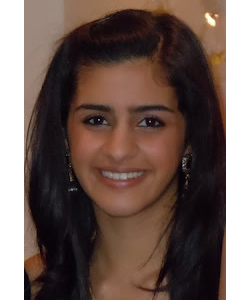College campuses are always political. And whether, as a staunch liberal in a sea of Republicans, or deeply conservative on a largely Democratic campus, college students have become quite familiar with the increasingly bitter and highly partisan comments that politically charged Millennials can deliver.
Last year as a freshman, I heard some of the stereotypically harsh zingers of the politically aware: “Well, she’s a Republican, she probably doesn’t even like poor people!” “Wait, you’re a Democrat. Are you on financial aid?” “Why do you support the Dream Act if you’re American? Don’t you want this country for yourself?” And the list of those freshman year anecdotes goes on and on. But this year, I’ve heard far fewer snarky comments about the economy, the federal government versus the states, or even concerns about national security. This year, in fact, the favorite dig of the liberal Millennial (and I would imagine this has any non-Tea Partier cringing) has got to be some variation of: “Are you serious? How can you be a woman and be a Republican?”
So how did we get to this point? How did this election, which political pundits hailed as the one that was finally going to be about
something in terms of how this country governs, spends, and divides its power, become an election that uncovered unsettling discoveries about inequalities we assumed democracy had dealt with? Perhaps it all started with that
picture of the Congressional hearing on birth control and its all-male panel. Women’s health and a woman’s control over her own body—things that Millennials more or less accepted or endorsed in the Berkley Center’s last
survey—have become phenomenally large issues for a country that many believe to be at the height of democracy and equality in the world. Whatever triggered this discourse, it has certainly snowballed into something big. I believe that women, and in particular Millennial women, are going to be playing a bigger role in this election than they ever have before, and perhaps, making a real difference.
Millennial women have become increasingly relevant in today’s political and media discourse. I think there are some key reasons why they’ve become so important as a voting group today. First, of course, is the fact that Millennial women today are largely constituted of college-going young women who have been raised to believe that they really can have it all. From 1999 to 2009, there has been a
63 percent increase in the number of females attending institutions of higher education. As well-educated and often urbane women, we’re the kind of voting group that everyone predicts will likely be at the polls. Another reason why Millennial women are going to be so pertinent to this election is undoubtedly because we have been at the epicenter of a flurry of debate in the technological world. From Anne-Marie Slaughter’s
now infamous piece in
The Atlantic, to
Marissa Meyer’s rise to CEO of Yahoo, to book releases by our generation’s own
Catlin Moran, to any number of smaller college newspaper
responses to the growing questions of what it means to be a young woman today.
Millennial women are aware that we don’t live in a man’s world anymore; and through technology (which I think is our generation’s best hope at perhaps someday creating a unified Millennial identity) it’s become evident that the partisan divide over women’s health and reproduction is not something that we will entertain. At some point growing up, I used to think that suffrage meant that there wouldn’t be gender discrimination anymore, that American democracy would mean that there would obviously be gender equality. And I think the rest of America thought the same thing. However today, I think I know that that’s simply not true. And perhaps it’s something in the electromagnetic waves of the internet, but all of a sudden the “Women for Obama” Facebook page has suddenly gotten a whole lot more active.
Which brings me to the final reason why I think Millennial women are going to have such a large role to play in the election—this ridiculous partisan divide. Of course, no one is going to assert that every member of the Republican Party doesn’t have either a belief in or even mild understanding of women’s rights. But with all the bad press they’ve been getting, it’s certainly starting to look that way. In a way, it seems like the fierce party polarization will be enticing Millennial women to the polls, both out of anger that the Republican Convention’s
platform indicated a desire to ban all forms of abortion (I know few rational pro-lifers who believe that abortion should be denied in cases of rape or incest) and a ton of fear that someone like Todd Akin will be in power. It might just be bad press, but a great many Millennial women today are starting to strongly associate politics with only these narrow social policies.
It’s surprising to me though that the conversation around the election has turned so strongly to the discussion of social issues. By no means was this country ever a perfect democracy—and I don’t think it will be soon—but I thought America had adopted something of a modernist approach to democratic development (something of a “let’s fix the economy, become the undisputed center of power again, and all will eventually be well in society” approach). It is both startling and encouraging to me, as a Millennial, though, that social issues haven’t been brushed under the carpet just yet. It means that there’s definitely hope for our generation to tackle not only the plaguing economic and diplomatic troubles we will inherit, but the festering social ills our democracy faces, such as incarceration rates, gender and race discrimination, public education, and immigration reform. I’m happy to say that I think the pundits were wrong—this election will definitely be about something.

